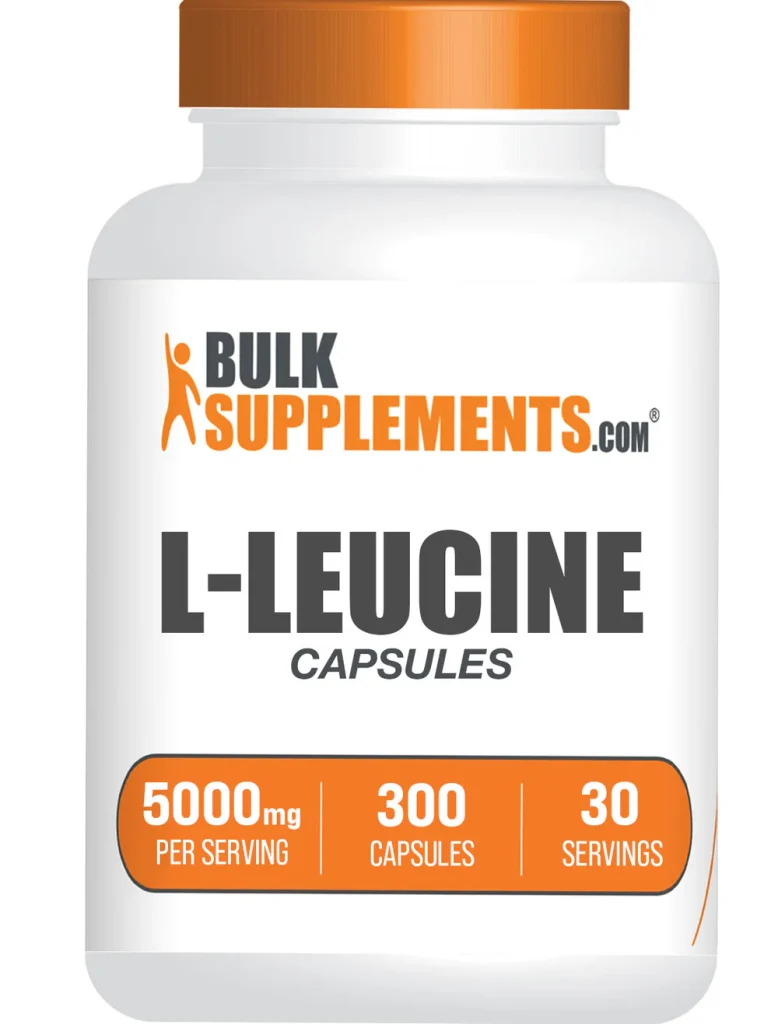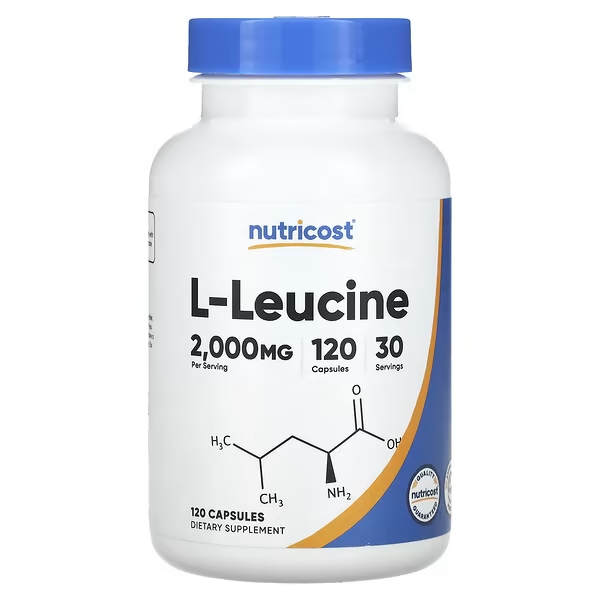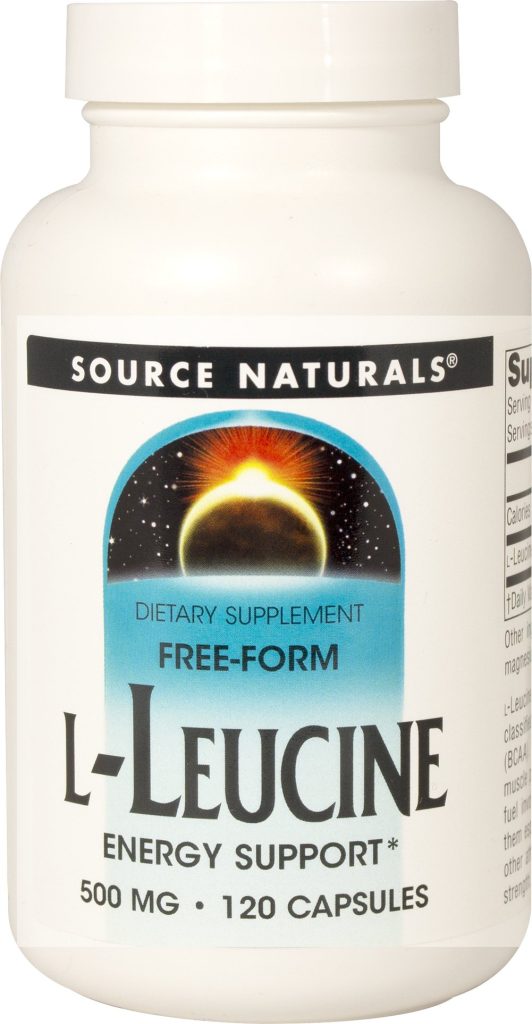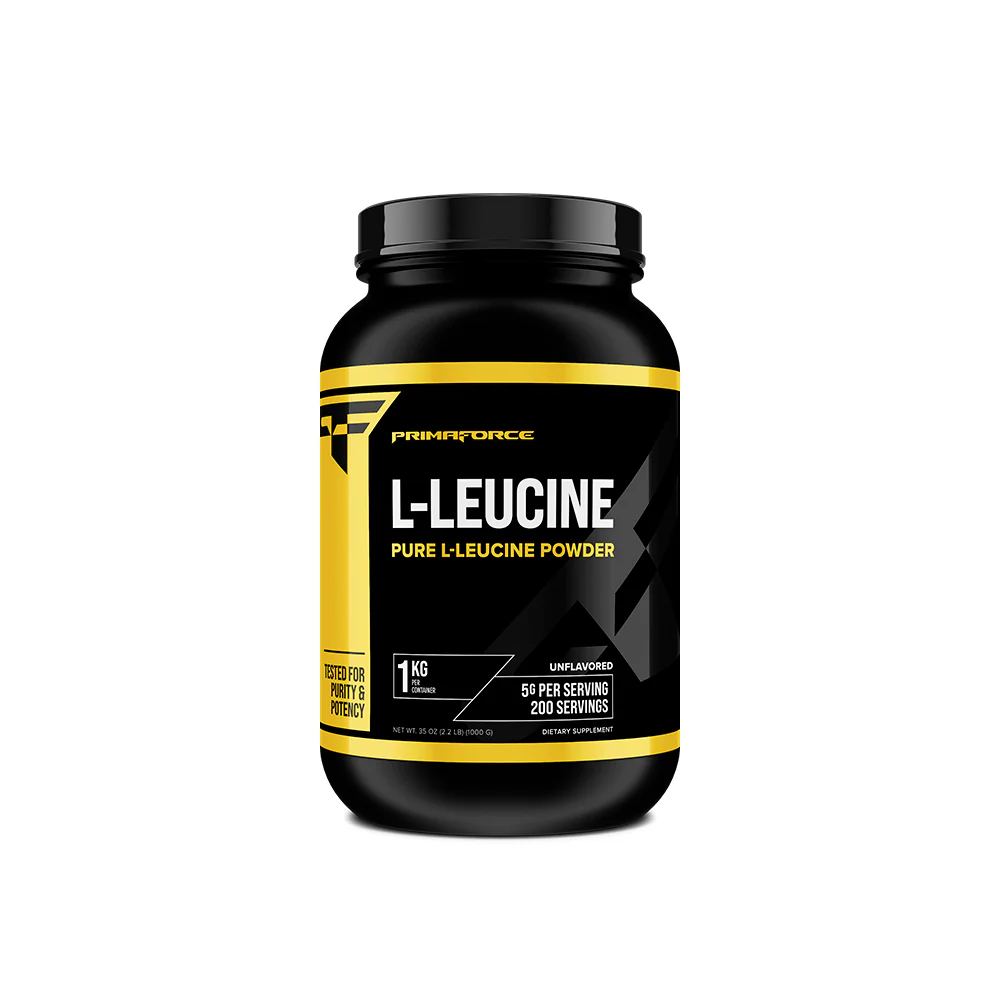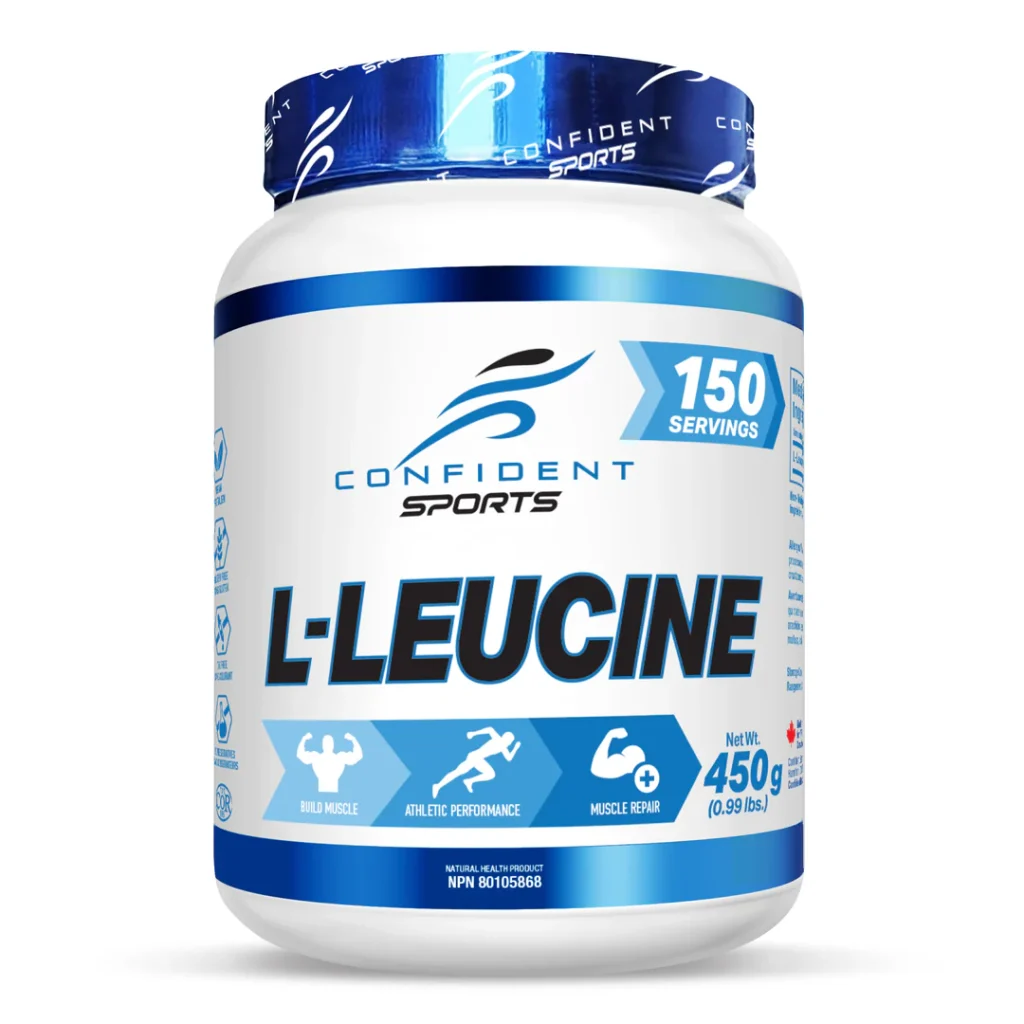What’s L-Leucine powder ?
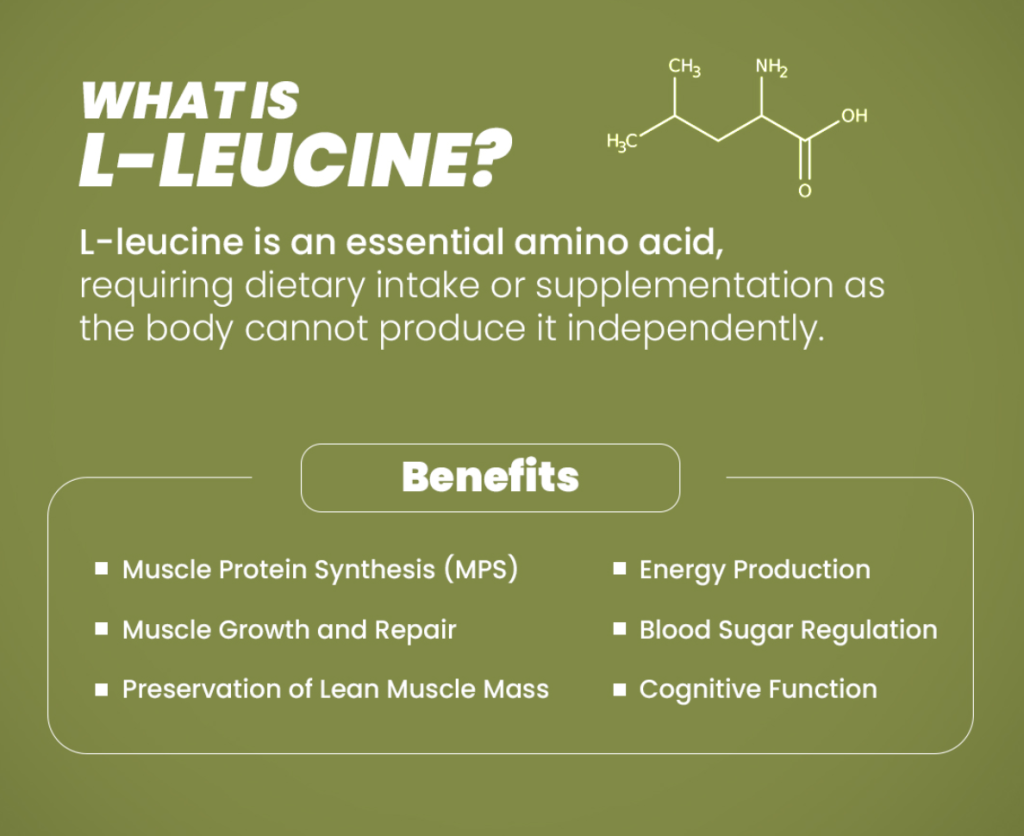
L-Leucine Powder is one of the 3 essential branched chain amino acids. These amino acids can be used by skeletal muscle to give energy during exercise. Eating foods that have complete protein gives enough of these amino acids. This includes foods such as meat, poultry, fish, eggs, and milk. Studies have not consistently shown that taking supplements of these amino acids improves exercise performance, builds muscle mass, or helps you recover from exercise. Leucine may help in healing skin and bones. It may increase muscle growth and lean body mass. It may increase production of human growth hormone. It may help control blood sugar.
Of the 20 essential amino acids, nine are actually essential. Of those nine, three are branch-chain amino acids (BCAAs). Leucine falls into both groups. All BCAAS are vital for building and repairing muscles, and some researchers say leucine may be the most important of all.
BCAAs got their name from their molecular structure. They are essential because the body cannot make them, but they are available in food sources. The other BCAAs besides leucine are valine and isoleucine. Research has been mostly inconclusive about whether BCAA supplements improve muscle mass or muscle recovery over dietary sources alone.
Benefits of L-Leucine powder
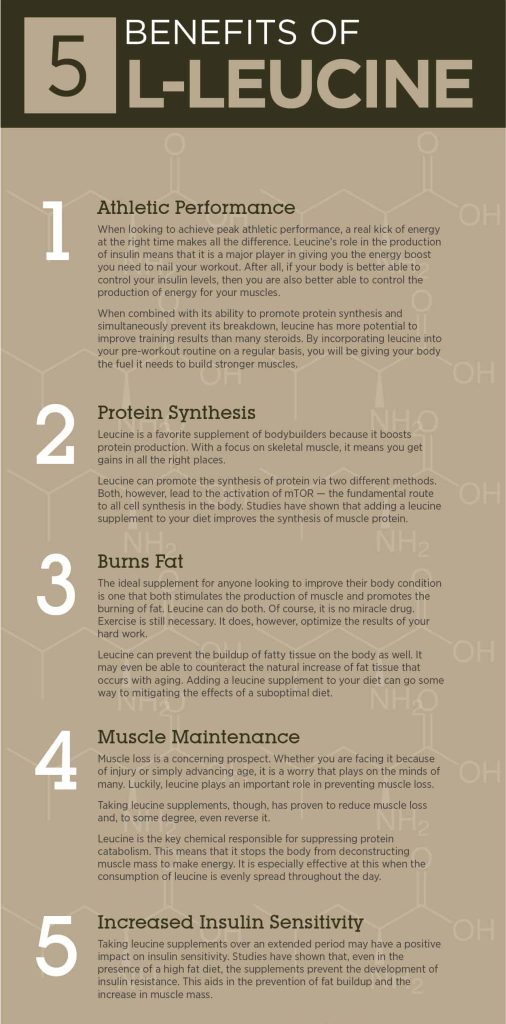
Why You Need L-Leucine powder
Leucine performs a number of functions in the body. It helps to regulate blood sugar, improves wound healing, and produces growth hormone. But leucine is best known for its role in the muscular system, including these functions:
Muscle Building
Scientists know that leucine is vital for muscle building and muscle repair. They aren’t sure whether supplementing with leucine and other BCAAs will build or repair muscles faster.
According to the National Institutes of Health, BCAA supplements don’t seem to increase endurance but may increase muscle mass when combined with strength training. Also, it’s not clear if using supplements is superior to boosting protein in the diet.
Muscle Recovery
Leucine may help muscles recover after strenuous use. In one study of highly fit cyclists, taking leucine after a workout enhanced their speed the next day. They also reported less overall tiredness.
Prevention of Muscle Loss
L-Leucine powder has been shown to improve strength in older adults, especially those with sarcopenia (muscle loss). Sometimes exercise enhanced the benefit. In one study, older men increased their synthesis of protein even though they were not deficient.
Weight Control
L-Leucine powder seems to play a role in weight control. In animal studies, leucine supplements increased the response to leptin, a hormone that regulates appetite.
Some researchers believe that the success of high-protein diets may be due in part to the role of leucine in regulating blood glucose.
How to get L-Leucine powder
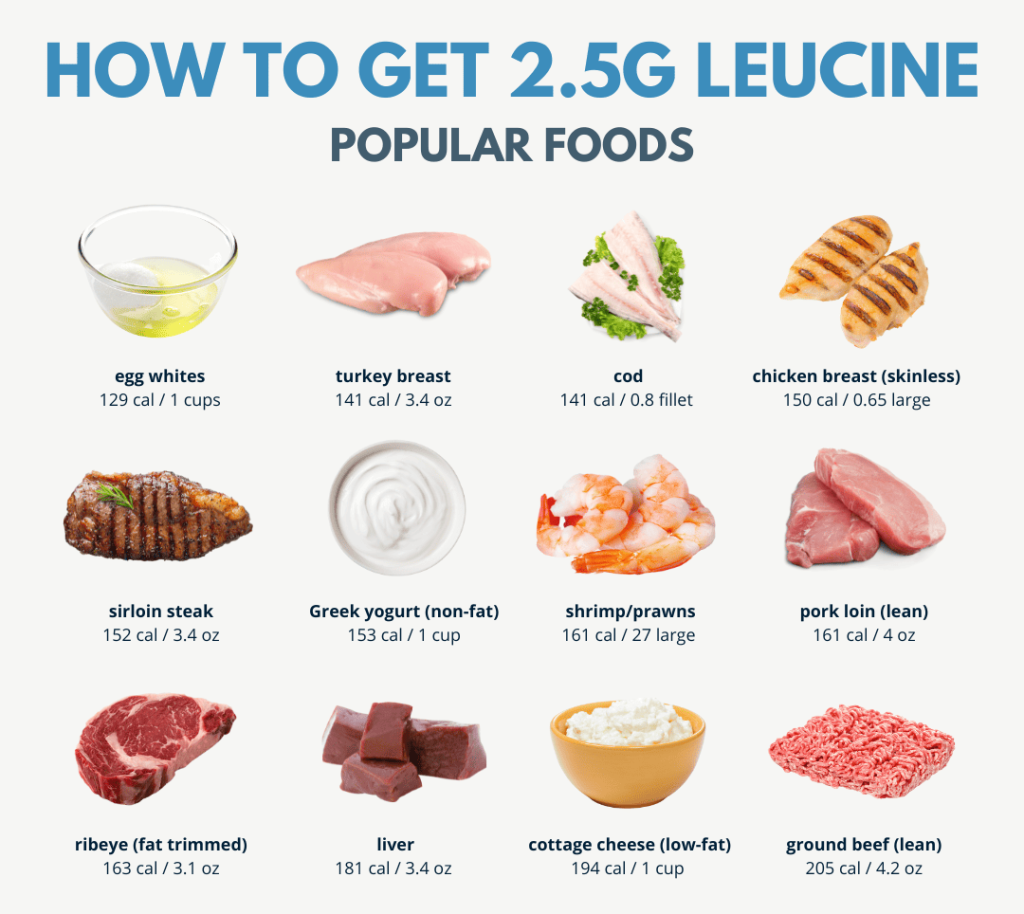
Foods with L-Leucine powder
Getting your leucine and other BCAAs from food is safest for most people. The Food and Drug Administration does not regulate supplements, so they may not contain precisely what they say they do. They can have side effects or interact with other medications. Dietary sources are mostly safe, inexpensive, and good-tasting.
Nutrition labels for food don’t list the individual amino acids, so most people should just be sure they are getting enough protein. Adults need about 7 grams (g) of protein per 20 pounds of body weight, so a person weighing 140 pounds would need 49g.
Both plant and animal food can fulfill your protein needs. Once animal foods were considered superior for protein as they contain all the essential amino acids.
Dietitians now say that it is not necessary to consume all the essential amino acids at one time. Instead, they can be spread over the course of a day, making it much easier for people who are vegan and vegetarian to meet the recommendations for protein.
There are many dietary sources for leucine and other BCAAs. Consider these healthy sources of amino acids:
1. Salmon
Get your amino acids from salmon, and you’ll also get omega-3 fatty acids. There are some health concerns about farmed salmon. Choose wild-caught or limit your servings per month.
2. Chickpeas
These nutritional superstars contain 7g of protein and 6g of fiber in just half a cup, and they are high in iron, too. Enjoy them as hummus or add them to soups, stews, curries, and salads.
3. Brown Rice
Try brown rice instead of white. You’ll get a nutty taste and a slightly chewy texture that many people enjoy.
4. Eggs
Even the American Heart Association says that an egg a day is okay. You’ll get 6g of protein in that egg.
5. Soybeans
This versatile legume is available in a variety of forms, including tofu, tempeh, edamame, and roasted soybeans. Today, texturized soy protein is readily available in supermarkets. It can substitute meat in many dishes.
6. Nuts
Almonds, Brazil nuts, and cashews are good sources of essential amino acids. So are peanuts, although they are technically legumes instead of nuts.
7. Beef
Beef is one of the best sources of amino acids. To reduce your intake of fats and cholesterol, choose a lean cut or try grass-fed beef.
L-Leucine powder as Supplement in the market
